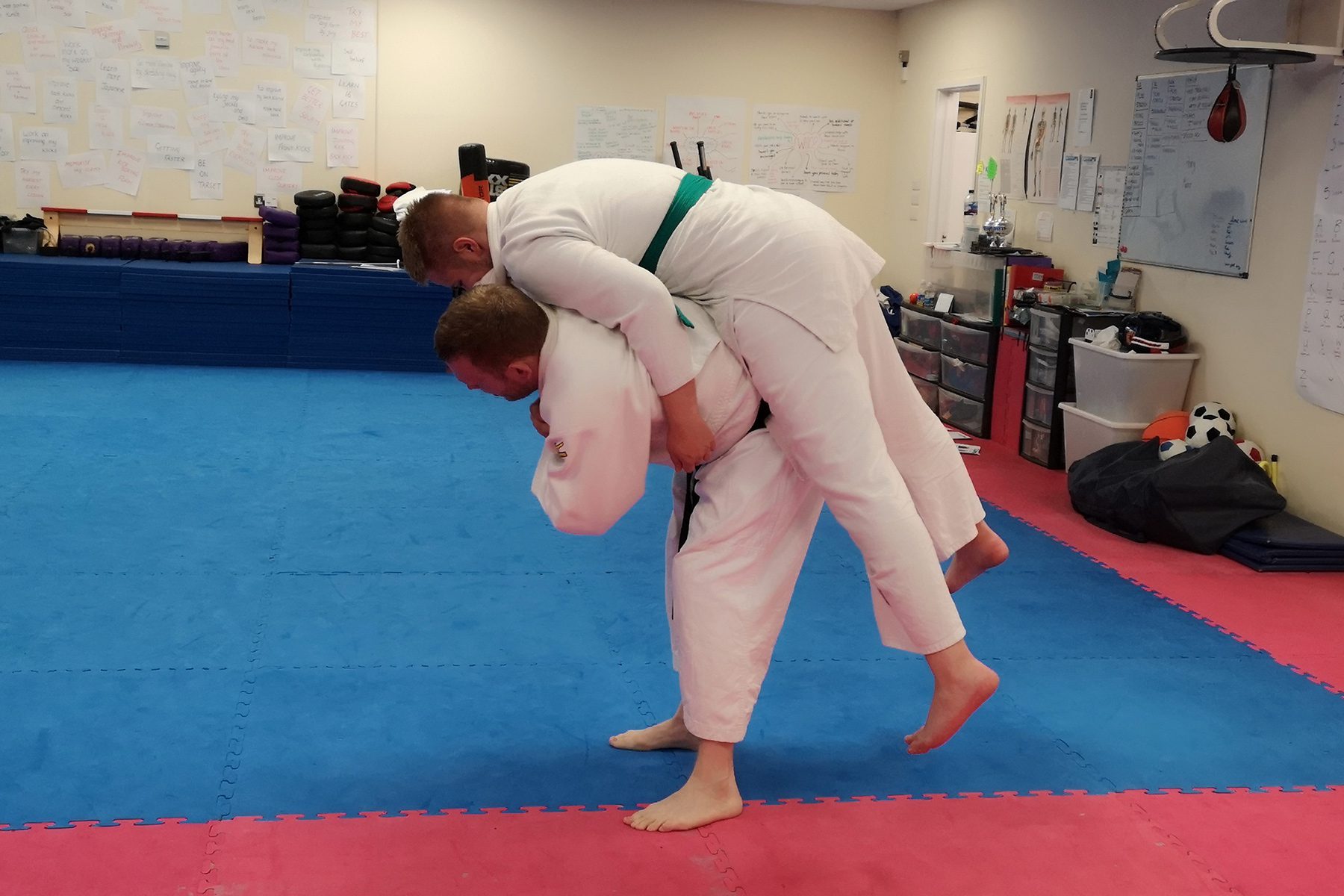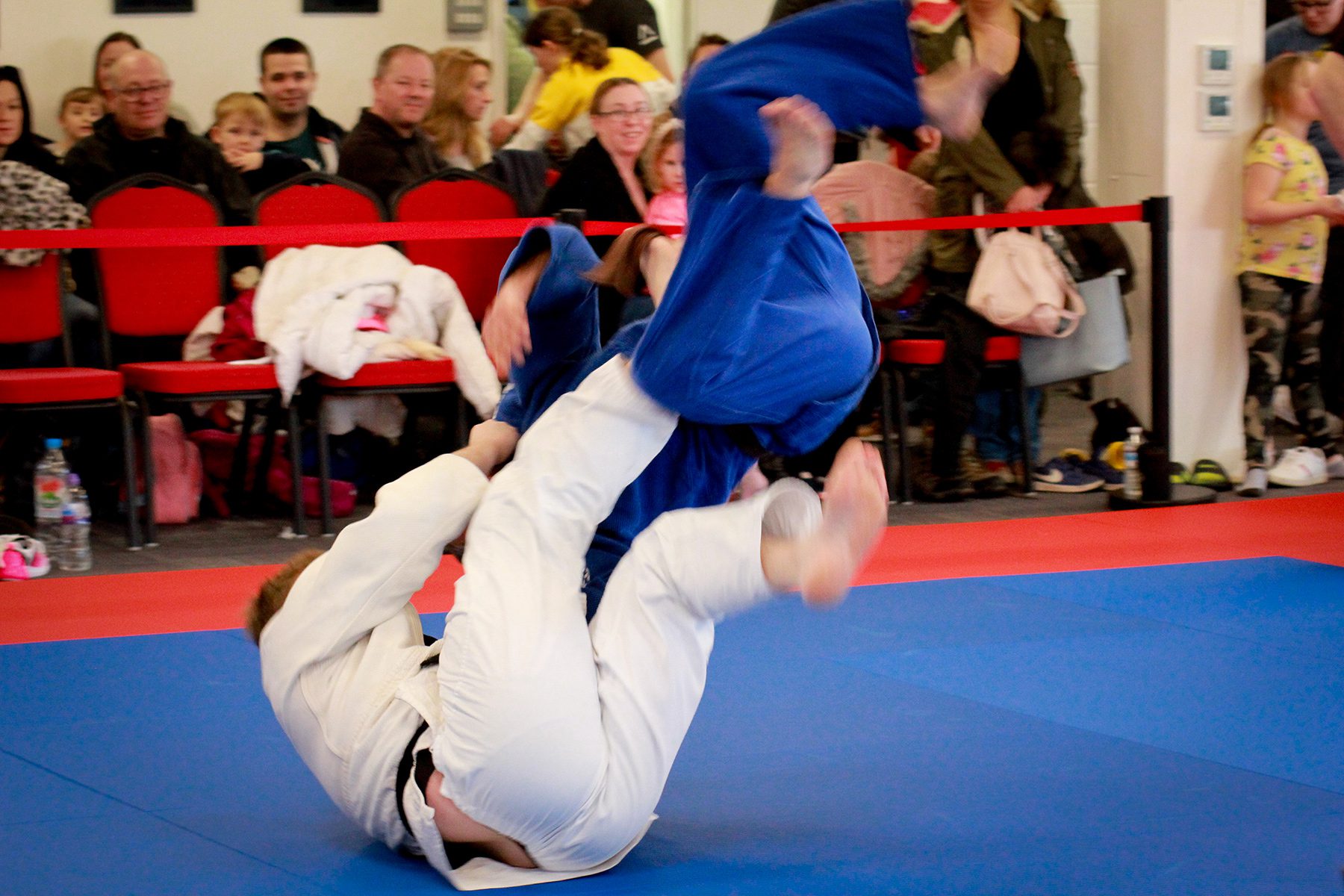Work hard, get fitter and learn a host of useful skills.
Judo has been recognised for many years as an Olympic sport. Judo incorporates techniques and skills to lift and then throw your partner onto their back and pin them down. All practitioners learn how to safely perform a breakfall whilst they are beginners to Judo. Like all Martial Arts, if Judo is practiced properly the risk of injury is minimised.
We cater for younger players in their late teens or early 20s through to practitioners who are much older than that, going into their 50s. Clearly, at different ages, there can be a big disparity in terms of what a player is capable of doing, we are aware of this and can help you to maximise your training time by ensuring the techniques that you do are optimal for your age and body.
You can expect to work with a partner during the class to learn and practice techniques under the watchful guidance of our fully qualified British Judo Association coaches. It will be hardwork, you will get fitter, you will learn a host of useful skills and improve your coordination and you’ll even have fun doing it.
Professionally equipped full time dojo
Our Basingstoke Judo club is registered with the British Judo Association, the sport’s National Governing Body. We are in a professionally equipped full time dojo with mats permanently laid and a range of training equipment to use to help develop strength and flexibility. Our permanently matted dojo make training easier and safer when practicing Judo.
Taster session
To book your FREE taster session get in touch with us.
Practising effective Judo techniques
Judo is an Olympic sport and includes techniques to lift and throw your opponent onto their back. Once on the ground there are techniques to allow you to pin your opponent to the ground, control them and apply different hold-downs until submission. Judo translates from Japanese as the Gentle Way. The name is a big clue to one of the guiding principles of Judo, which is not to rely on force, but rather to use the force and strength of one’s opponent against them.
The techniques necessary to practising effective Judo techniques do not rely on strength or size, meaning that they can be performed against larger and stronger opponents. This makes this learning Judo as a beginner, a great martial art to learn both for children and adults either as a sport or for self defence.
What our clients think
What is Judo?
Judo was founded by Jigaro Kano in Japan in 1882 and translates as “Gentle Way” – Ju = Gentle or soft and Do = Way of Path. While judo includes a variety of rolls, falls, throws, hold downs, chokes, joint-locks, and strikes, the primary focus is on throwing (nage-waza), and groundwork (ne-waza).
The ground fighting techniques (ne-waza) are divided into attacks against the joints or joint locks (kansetsu-waza), strangleholds or chokeholds (shime-waza), and holding or pinning techniques (osaekomi-waza).
For safety reasons not all of these techniques are taught to start with, as the practitioner’s skill levels increase, the more of the techniques are practiced. A kind of sparring is practised in judo, known as randori, meaning “free practice”. In randori, two partners may practice with each other with any judo throw or grappling technique, sometimes this is free practice and sometimes using specified techniques.
Our fully qualified Judo coaches who are based in Basingstoke will help you to develop high quality Judo skills in our professional centre.

Frequently Asked Questions (FAQs)
Your Title Goes Here
Your content goes here. Edit or remove this text inline or in the module Content settings. You can also style every aspect of this content in the module Design settings and even apply custom CSS to this text in the module Advanced settings.
How is Judo different to other Martial Arts?
Modern Judo has been designed to be practiced safely with a partner without injuring them. Judo, as a sport, involves two partners (or Judoka) gripping their partners uniform (JudoGi) to use balance and movement to throw the other or hold them down on the mats. In a typical Judo class, you will not see or learn any kicking, punching or other striking techniques.
I’ve never done Judo before.
That is okay. Beginners Judo classes or courses will teach the fundamental techniques and how to perform them safely. For example we can use the safety mats to practice breakfalls along with the first couple of throws and hold-downs. We’ll work with you to build your confidence and skills at a pace that suits you.
I’d like to find out more please
Please enter your contact details below to book a free taster class and find out more about how we can help you.

